- DMG Editorial: A Parliament Without the People Cannot Govern Arakan
- Displaced Arakanese struggle to rebuild homes leveled by junta airstrikes
- India suspends Arakan trade route for two months after death of truck driver in Paletwa
- Landmine, ERW casualties rising in Arakan State amid ongoing conflict
- Eight children killed or injured in two days of shelling, UXO blasts in Hpakant
Arakan salt farmers face losses amid transport barriers, high fuel prices
Salt businessmen in Arakan State are facing financial losses for a variety of reasons including junta blockades triggered by the ongoing conflict between Myanmar's military regime and the Arakkha Army (AA).
21 Sep 2024
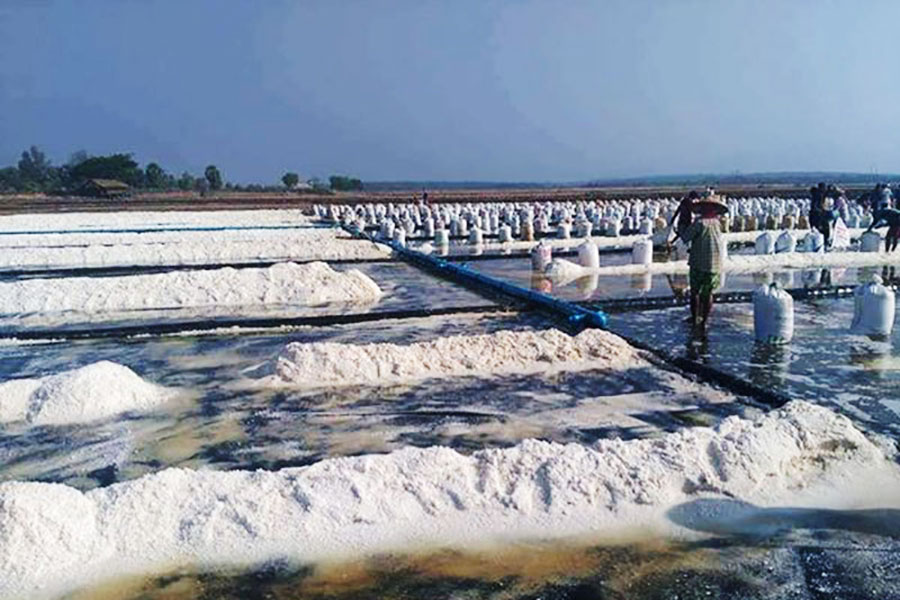
DMG Newsroom
21 September 2024, Kyaukphyu
Salt businessmen in Arakan State are facing financial losses for a variety of reasons including junta blockades triggered by the ongoing conflict between Myanmar's military regime and the Arakkha Army (AA).
The businessmen said that with the expansion of the theatre of conflict in Arakan State, the regime has blocked off inter-township land and water routes, and salt cannot be transported to many markets beyond the townships where production takes place.
"As the businessmen could not export the salt produced last year to some townships due to the fighting, they suffered a financial loss. We could not transport salt to Sittwe and Maungdaw townships last year," said U Phyu Daung Gyi, a member of the Kyaukphyu Township Salt Farmers Association.
Salt produced in Kyaukphyu Township has been shipped to Ann, Myebon, Minbya, Mrauk-U, Kyauktaw, Ponnagyun, Sittwe, Buthidaung and Maungdaw townships in recent years, but access to several of these markets has been limited or barred entirely since the resumption of military-AA hostilities in November of last year.
Salt produced last year and in 2024 is piling up in the hands of salt entrepreneurs and salt farmers due to the curtailing of market access, as well as soaring fuel prices.
"We still have the remaining salt and cannot get back the money we invested," said a salt farmer from Shwenyoma Village in Kyaukphyu Township. "It is still impossible for us to produce salt this year at the current price due to our financial losses. We cannot buy necessary things because the regime blocked off entries and exits to Kyaukphyu. Salt farmers face more hardships due to rising fuel prices."
Bangladesh and the military regime reached an agreement in March 2022 that was to see salt from Arakan State shipped to the neighbouring South Asian country.
The promise of transnational markets fueled an expansion of salt production in Arakan State, as well as an increase in the number of people working in the salt industry. But more than two years later, the industry outlook has dimmed.
"Since we were told we would be allowed to export salt to Bangladesh, there are more salt farmers. Salt entrepreneurs expanded their businesses, but the plan did not materialise, so salt farmers and salt businessmen face financial losses," said a salt farmer from Ngapyitet Village in Pauktaw Township.
There are about 7,000 acres of salt farms in Arakan State, with the largest concentration in Kyaukphyu Township and smaller operations in Thandwe, Gwa, Sittwe, Pauktaw and Rathedaung townships.




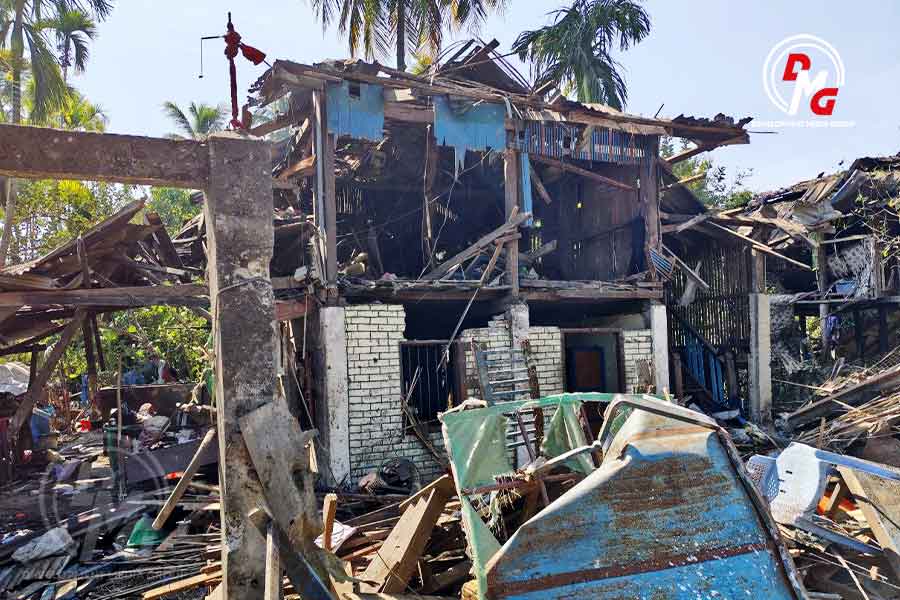
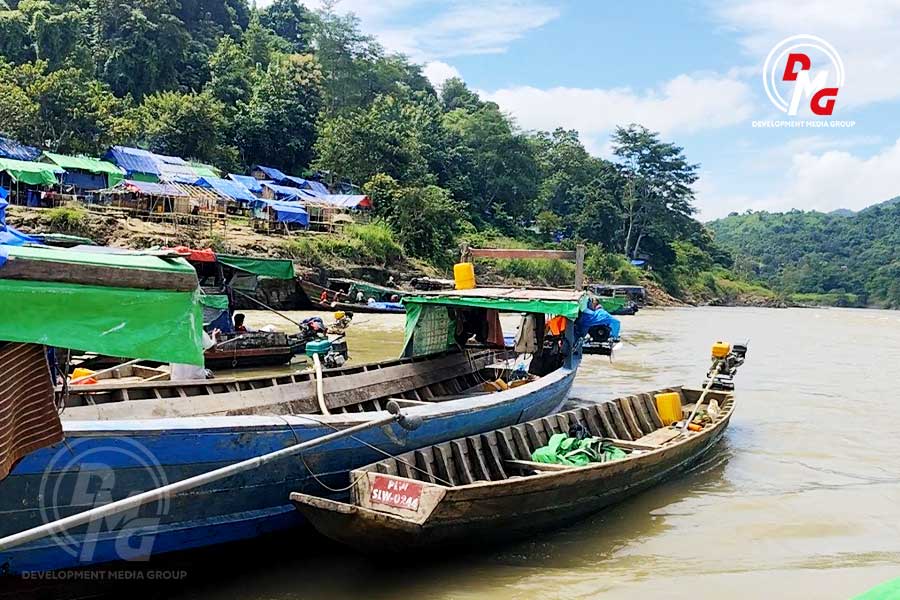
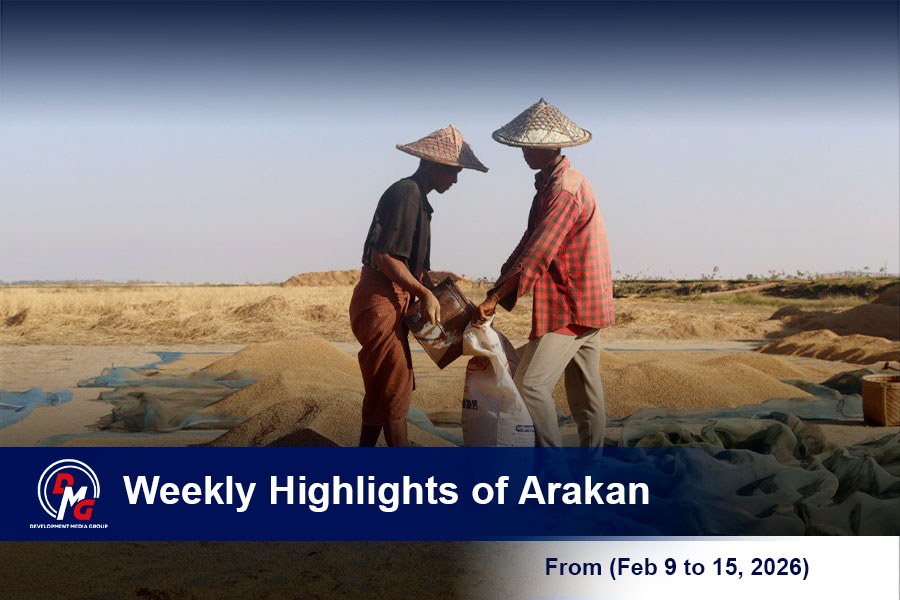
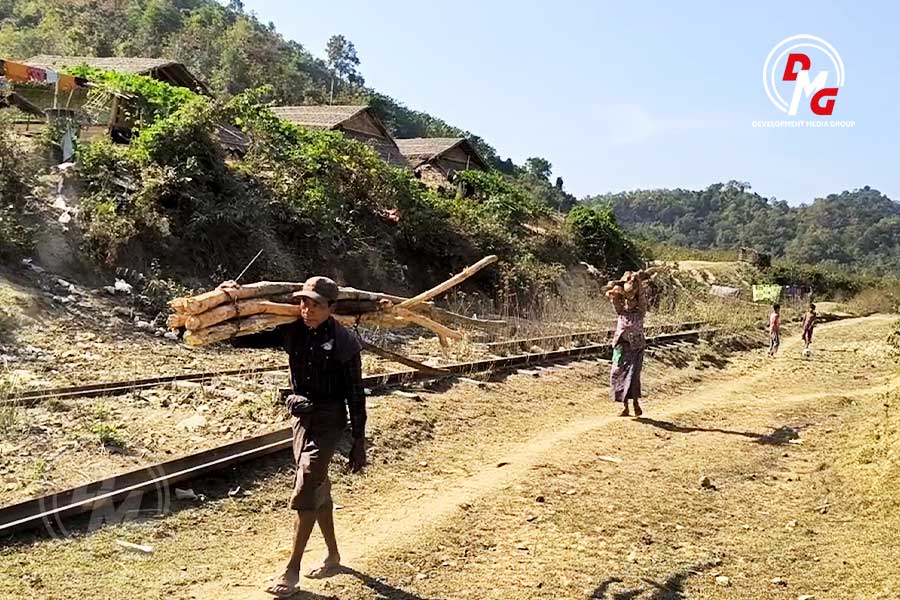
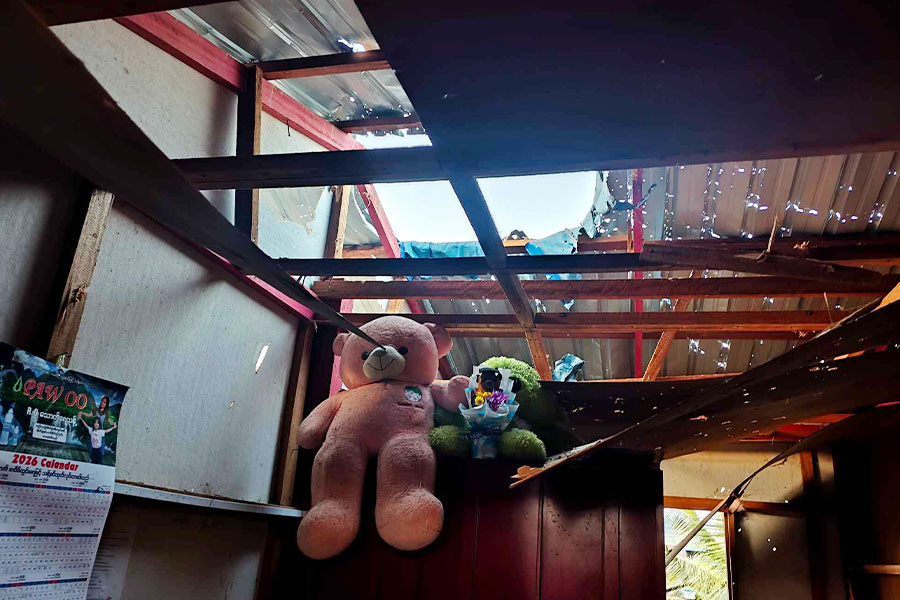







.jpg)
